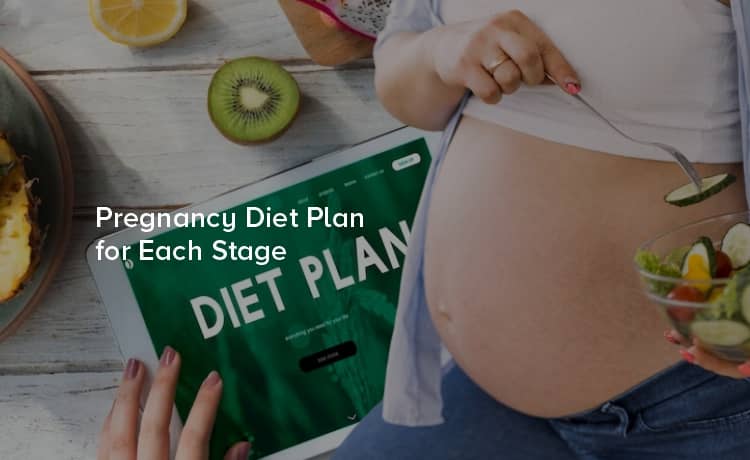
Navigating through the journey of pregnancy can be both thrilling and challenging. One of the most critical factors during this time is maintaining a balanced diet, as the right nutrients contribute significantly to the health and development of your baby and your well-being.
The food you eat is your baby's main source of nourishment, so it's imperative to consume a variety of healthy foods to provide the essential nutrients that your body needs during each stage of pregnancy. This post will guide expectant mothers through crafting a tailored diet plan that evolves with the demands of every pregnancy trimester, including the postpartum period.
Your first trimester is a foundational period for your baby's development. Adequate intake of folic acid, iron, and calcium is particularly crucial.
To curb morning sickness, try eating small, frequent meals and keeping snacks like crackers by your bed. Hydration is also essential, so always keep water on hand.
As you enter the second trimester, your body's demand for certain nutrients, such as protein, magnesium, and vitamin D, ramps up to support your baby's rapid growth.
Managing cravings is also important during this stage— focus on moderation and healthy alternatives that satisfy without excessive weight gain.
In the third trimester, your baby puts on weight and prepares for the outside world. Your diet should include plenty of omega-3 fatty acids, fibre, and iron.
Paying attention to portion sizes can help manage discomforts like heartburn and indigestion.
After delivery, your nutritional focus shifts to recovery and supporting breast milk production if you choose to breastfeed. Foods rich in protein, vitamin C, and calcium are beneficial during this stage.
Remember, the goal is not immediate weight loss but a gradual return to pre-pregnancy weight. Your body needs time to recover from childbirth.
A well-balanced diet during pregnancy and after childbirth cannot be underscored enough. Eating various nutrient-dense foods gives you and your baby the necessary building blocks for a strong start and a healthy future. Regular consultations with your healthcare provider will ensure your diet aligns with the unique needs of your pregnancy.
Call us now at 040 67 19 19 19 to schedule your appointment with our obstetrics and gynecology specialists, or conveniently book online through our Citizens Specialty Hospital website. Take the first step towards ensuring a healthy pregnancy and postpartum journey for you and your baby!